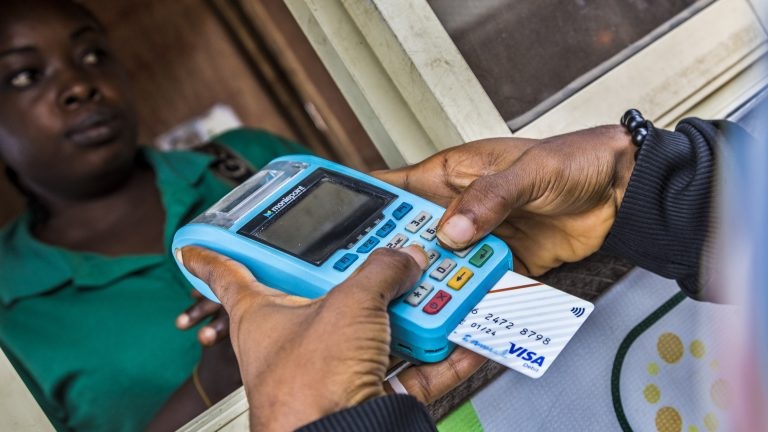
The recent directive from the Nigerian government mandating Point of Sale (POS) operators to register with the Corporate Affairs Commission (CAC) as part of its regulatory oversight to fortify the financial sector, has come under question.
A closer examination reveals underlying implications that demand scrutiny, particularly in the context of legitimizing Naira trading as a commodity amidst concerns of artificial arbitrage.
The Registrar-General of CAC, Hussaini Magaji, while announcing this measure, whose deadline is July 7, noted its alignment with legal requirements and CBN directives, seemingly positioning it as a safeguard for Fintech customers and an economic booster.
Tekedia Mini-MBA edition 14 (June 3 – Sept 2, 2024) begins registrations; get massive discounts with early registration here.
Tekedia AI in Business Masterclass opens registrations here.
Join Tekedia Capital Syndicate and invest in Africa’s finest startups here.
He said, “The measure is to safeguard the businesses of Fintech customers and strengthen the economy. The action is equally backed by Section 863, Sub-section 1 of the Companies and Allied Matters Act, (CAMA 2020), as well as the 2013 CBN guidelines on agent banking.’’
Representatives of major players in the industry, such as Opay, Momba, Palmpay Ltd., Paystack, Fairmoney Microfinance Bank, Moniepoint, and Teasy Pay were in attendance at the event. The focal point of the event was the signing of a document by these representatives, signaling their support for the project.
POS operators, as intermediaries in digital transactions, play a pivotal role in the exchange of goods and services for Naira. As of 2022, there’re over 1.8 million POS operators nationwide, making it one of the fastest-growing industries in the country. However, there is a wide belief that the POS operation, approved in 2013 by the CBN to bridge the gap in financial inclusion, only thrives as a Naira exchange means due to the high rate of unemployment in Nigeria.
Though in support of the new directive, many have noted the need to curtail fraud enabled through POS operators, arguing that the registration of POS operators will significantly mitigate digital financial crimes. In 2023 alone, PoS terminals accounted for a whopping 26.37% of fraud incidents in Nigeria.
While the government’s stated aim is to regulate the burgeoning Fintech industry and protect consumer interests, a critical examination reveals potential pitfalls, particularly concerning the legitimization of Naira trading as a commodity amidst concerns of artificial arbitrage.
Many believe that by mandating their registration with the CAC, the government bestows a semblance of legitimacy upon their operations, implicitly endorsing the trading of Naira as a commodity. Economists say that this move inadvertently sanctions the commodification of Nigeria’s currency, potentially exacerbating existing vulnerabilities within the financial ecosystem.
One of the primary concerns stemming from this directive is the exacerbation of artificial arbitrage within the digital payment industry. Artificial arbitrage occurs when there is a significant variance in the value of the Naira across different platforms or markets, leading to exploitative practices by unscrupulous actors.
By formalizing the operations of POS operators, the government is believed to have inadvertently provided a platform for the perpetuation of artificial arbitrage, further destabilizing the currency’s value and eroding consumer trust.
“POS can’t take over function of cash deposits and withdrawal from licensed commercial and microfinance banks,” financial analyst, Kalu Aja said. “Are we so debased in expectations of service that licensed trillion naira banks with billions of naira investment in retail branches and ATMs have no cash but a chap with an umbrella down the street has cash?”
Moreover, concerned Nigerians have noted that the registration mandate fails to address the root causes of artificial arbitrage or provide mechanisms for its mitigation. Instead of tackling systemic issues, the directive merely seeks to regulate the symptoms without addressing the underlying pathology.
The directive’s emphasis on regulatory compliance overlooks the broader socio-economic implications of legitimizing Naira trading as a commodity.
Since late 2022, a cash shortage induced by the CBN’s currency swap policy has persisted, with banks restricting ATM withdrawals to as little as N5,000 per transaction. Meanwhile, POS operators can dispense cash up to N500,000 for a fee.
“This is an aberration,” Aja added. “These “umbrellas” [POS stands] are beside banks in the cities, so what’s this financial inclusion excuse? Bank on Broad Street near CBN has no cash but boy under “umbrella” in same Broad Street has cash.”
Critics argue that the government’s focus on the registration of POS operators overlooks more pressing issues such as scarcity of cash in the ATMs. This imbalance in regulatory priorities, they say, risks compounding existing inequalities and perpetuating a cycle of economic disenfranchisement.
While the Nigerian government’s directive to register POS operators with the CAC may be well-intentioned, its unintended consequences merit closer scrutiny. Financial experts warn that legitimizing Naira trading as a commodity amidst concerns of artificial arbitrage may aggravate existing vulnerabilities within the financial ecosystem.



